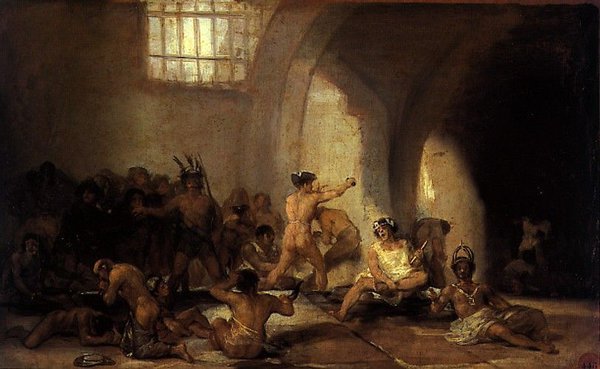Brexit: The wider discussion on democracy
Brexit: The wider discussion on democracy

The lesson from Brexit is never to ask the peoples of the United Kingdom to vote in a referendum on anything with great national significance.
The second lesson from Brexit is to scrutinize carefully the reasons for the almost total lack of information and clear, hard facts to enable people to reach a decision and the third lesson is the political system itself.
How it is possible that people who had the individual responsibility to think carefully about the future of the country not only for themselves, but also for their children's and grandchildren's generation, were so misinformed that they could wholly and totally miss the main issues at stake is dumbfounding.
When the climate is macro you do not go micro
The main issues, as I have stated here numerous times, are that the global economy is governed by macro-economic trends and when the climate is macro, you do not go micro. When you have tied your economy inextricably into a mesh of 28 nations, when you do over half your trade with this block of 741 million people (the population of the UK is 66 million), then going it alone has serious consequences.
First, Brexit means that the UK will now have to pay to do business with the EU, whereas today it does its business for free. This will entail knock-on effects upstream and downstream, meaning that exports will have to be more expensive and therefore they will be reduced in number. Fewer exports is translated into companies going under, and this means job losses. This means more social payments in unemployment benefit from the State, and this means either higher taxes to cover the cost, or else worse public services. This means a National Health Service with less money, so longer waiting lists, shortages of staff, worse healthcare. It means schools with fewer teachers and worsening accommodation, coupled with less equipment. It means fewer police on the beat and this means rising crime rates.
Everyone is firing, nobody is hiring
It means the growth of a marginalized younger population with no prospect of work because the jobs are being cut, nobody is hiring, everyone is firing. Brexit means the closure of research facilities today employing thousands of people, it means controls on collaboration among security services and Universities. It means narrower opportunities for young people and students to travel and study and work and live abroad, acquiring skills which enrich British society if they choose to return at a later date.
These are not pie-in-the-sky fantasies such as the 50 million pounds a day for the NHS peddled by those who used and manipulated half the population of the UK, these are undeniable facts.
Sharks first, minnows last
So the only alternative the UK would have in this scenario would be to suddenly conjure up a mass of trading agreements with the rest of the world, or else go back to the 1930s and practise autarky, as Portugal and Spain did under Salazar and Franco. The problem with scenario one is that countries are going to speak and listen to the EU first (with a far greater population than the UK) and then the UK might get a few of the crumbs and scraps after the main business has been done with the Big League.
As regards autarky, the idea is that an economy is self-sufficient and produces what it needs as far as possible. In Portugal and Spain, at that point in time (1930s/40s), the autarky solution meant that there were jobs available and prices tended to be low, as were salaries. But look at what happened. Spain slid down into backwardness and Portugal's energies went into maintaining its overseas Provinces and possessions (Angola, Cape Verde, Daman, Diu, Goa, Guinea-Bissau, Mozambique, São Tomé and Príncipe Isles and East Timor. Brazil had already ganied independence in the 19th century). Both countries lost the opportunities created through synergies and shared experiences and lost 50 years in terms of development. This is where Britain wants to go?
Today, a European project can fund a research initiative in, say, Lithuania using the resources of Romania's excellent scientific equipment, counting on the collaboration of scientists from France, Portugal, Italy, and today, the UK. Tomorrow, cut the UK out.
The Brexit version of democracy
So the democratic exercise of the Brexit vote has shown us what, exactly? It has shown us that people are not informed, they are disinformed and manipulated by those making a mint out of Brexit at their expense (those with offshore savings which this year they will have to declare in the EU if the country is a member state and those who made tens or hundreds of millions by "shorting the Pound"). Brexit may be an interesting exercise to discuss in an academic paper but the further you scratch at the surface, the worse the stench.
It is cloud cuckoo land, leading the United Kingdom into uncertainty and uncertainly is bad news for the economy, the value of the Pound and for jobs.
The bottom line is that if the politicians in Parliament deliver Brexit, they are delivering something which today most citizens of the UK do not want (the figure is at the lowest 55% Remain and 45% Leave, at the highest 72% Remain and 28% Leave, so probably somewhere in the region of 65% Remain and 35% Leave, the gap widening by the day as the uninformed inform themselves and the elderly pass on, and are replaced by younger voters, over 80 per cent of whom wish to Remain).
In this case, we can place in question the entire political system in the United Kingdom. It does not defend the interests of the people, it defends the vested interests of those in Parliament many of whom are connected to Lobbies and the second they are elected, they are controlled by those pulling their strings. The people who placed them there are an afterthought. They are hands to be shaken, votes to be bought with a smile then dropped and forgotten.
How many members of the electorate know what their Member of Parliament is voting for, or why? Did the people of the UK agree with the war in Iraq? Then why did it go ahead? Do the people of the UK want Brexit? No, not all want the government "to get on with it", most do not want them to deliver it at all, as a Second Referendum would show clearly, and democratically.
What use is the British Parliament if it has made a laughing stock of itself, the country and its peoples? Perhaps the UK should consider Proportional Representation coupled with a form of Direct Voting. For that the political class will have to learn how to debate and negotiate, which is called Responsibility and also learn how to inform the people, which is their duty.
Those who further their own interests over the desire to show responsibility and fulfil their duty have no place in public service.
By Francisco Goya - Unknown, Public Domain, https://commons.wikimedia.org/w/index.php?curid=345095
Timothy Bancroft-Hinchey
Twitter: @TimothyBHinchey

Timothy Bancroft-Hinchey works in the area of teaching, consultancy, coaching, translation, revision of texts, copy-writing and journalism. Director and Chief Editor of the Portuguese version of Pravda.Ru since 2002, and now Co-Editor of the English version, he contributes regularly to several other publications in Portuguese and English. He has worked in the printed and online media, in daily, weekly, monthly and yearly magazines and newspapers. A firm believer in multilateralism as a political approach and multiculturalism as a means to bring people and peoples together, he is Official Media Partner of UN Women, fighting for gender equality and Media Partner with Humane Society International, promoting animal rights. His hobbies include sports, in which he takes a keen interest, traveling, networking to protect the rights of LGBTQI communities and victims of gender violence, and cataloging disappearing languages, cultures and traditions around the world. A keen cook, he enjoys trying out different cuisines and regards cooking and sharing as a means to understand cultures and bring people together.
Pravda.Ru
Subscribe to Pravda.Ru Telegram channel, Facebook, RSS!


